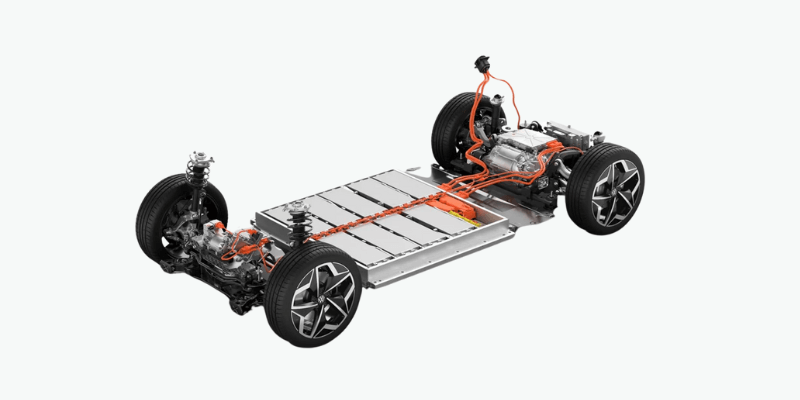Electric cars revolutionize transportation by providing a sustainable alternative to gasoline vehicles. Their operation relies on batteries, the core component of these modern marvels. This article explores the types of batteries used in electric cars, their capacities, and their longevity.
Types of Batteries Used in Electric Cars
Battery technology has advanced significantly over the past 40 years. With a focus on sustainable energy, we’ve moved beyond lead-acid batteries. Here are the two most common battery types used in electric vehicles today.
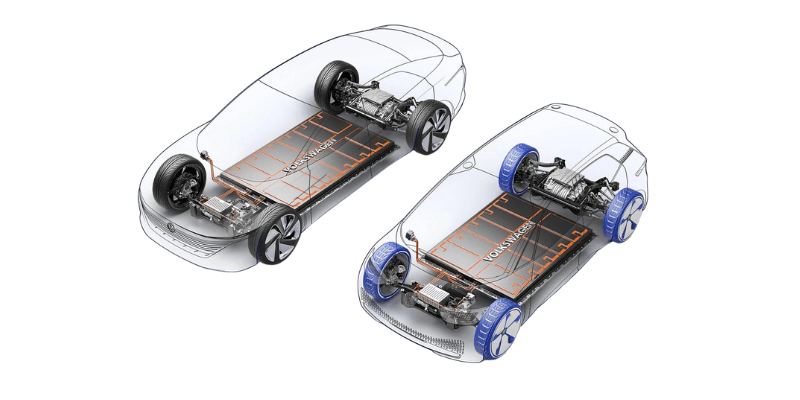
Lithium-ion Batteries
Most electric cars use lithium-ion batteries due to their high power-to-weight ratio and energy density.
There are six main types of lithium battery chemistry. Currently, NMC, NCA, and LFP dominate the EV battery market. In 2023, NMC held over 50% of the share in passenger cars, followed by LFP at around 40% and NCA at about 7%.
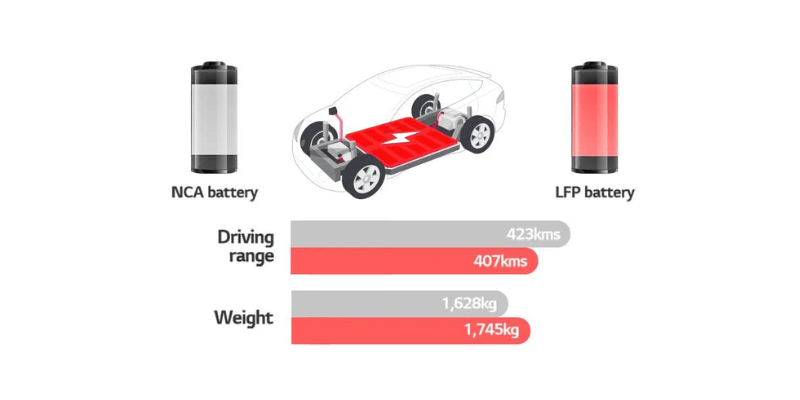
Since the 2010s, lithium nickel manganese cobalt (NMC) oxides have been the global standard for battery electric vehicle (BEV) production due to their high performance. However, mining these minerals raises environmental concerns. Traditional NMC batteries are temperature-sensitive, have poor low-temperature performance, and degrade over time. Additionally, standard lithium-ion batteries carry fire risks from volatile organic electrolytes and thermal instability in the anode SEI layer if punctured or improperly charged. Early models had difficulty charging in extreme cold but can be warmed with heaters in certain climates.
Lithium iron phosphate (LFP) batteries are cheaper, safer, and more sustainable than NMC batteries but have a shorter range. They don’t require critical minerals like manganese and cobalt. Since 2023, LFP has led in China’s market, though it holds under 10% market share in Europe and North America. LFP is also the main battery type for grid energy storage.
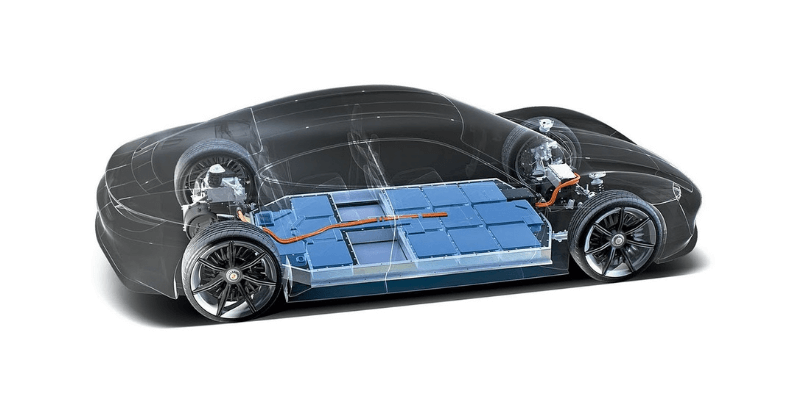
Nickel-Metal Hybrid Batteries
Nickel-metal-hydride (NiMH) battery packs are mainly used in hybrid vehicles, which combine gasoline engines with electric motors. These cars recharge the onboard battery using gasoline power.
NiMH batteries typically last longer than lithium-ion batteries and are safe. However, they are expensive to produce, generate significant heat at high temperatures, and have a high discharge rate. Most modern hybrids have transitioned to lighter, more compact lithium-ion batteries for better performance.
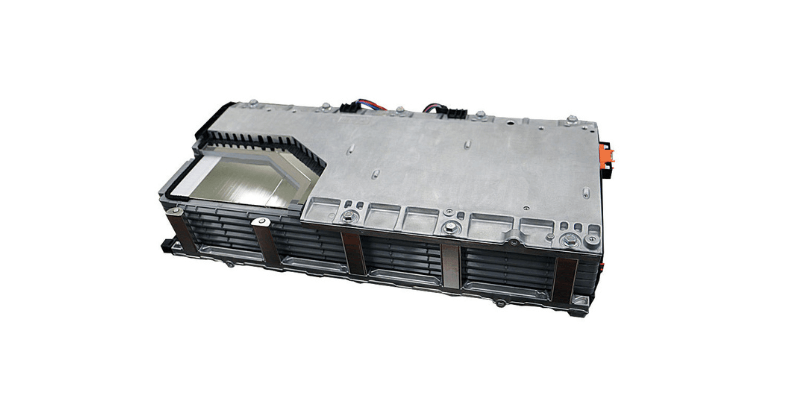
What Is the Capacity of an Electric Car Battery?
The energy capacity of an electric car battery varies based on the battery type and the car. Measured in kilowatt-hours (kWh), higher capacities allow for greater mileage without recharging.
In 2023, average EV battery capacities ranged from 21.3 to 123 kWh, with an average of 72.2 kWh. The popular Tesla Model Y has a 75 kWh battery that provides a range of 257 miles, while the Nissan Leaf e+ features a 59 kWh battery with a range of 211 miles.
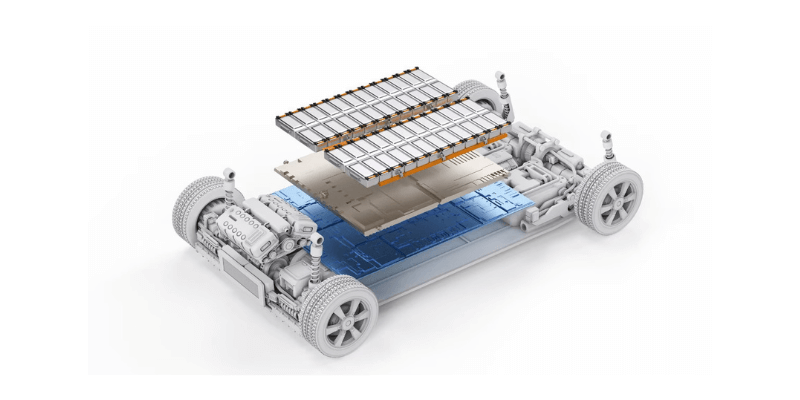
How Long Does an Electric Car Battery Last?
If you’re considering an economical vehicle, you might wonder how long the battery lasts.
Generally, lithium-ion batteries in cars last about 100,000-200,000 miles or 15-20 years.
However, battery life depends on treatment, charge and discharge cycles, and operating temperatures. Many cars use advanced battery management and heating/cooling systems to optimize performance and extend battery life.
How Are EV Batteries Disposed Of?
When electric vehicle batteries fail, where do they go?
Ideally, manufacturers would recycle them into new batteries by shredding and breaking them down with heat or chemicals to extract valuable materials.
However, only a small percentage of lithium-ion batteries are recycled due to labor and shipping logistics. Shipping these batteries requires more labor and resources than extracting new materials, leading to a lack of profitability. This issue is being addressed as lithium batteries become the primary power source for vehicles.
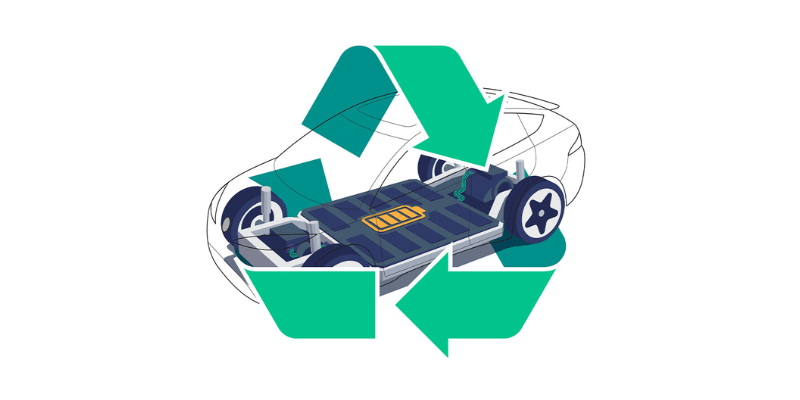
Is There Any New Technology in EV Batteries?
Advancements in EV batteries are progressing and could address recycling issues. Improvements continue in energy density, production costs, and safety. The main goals are to maximize energy capacity, longevity, and safety.


